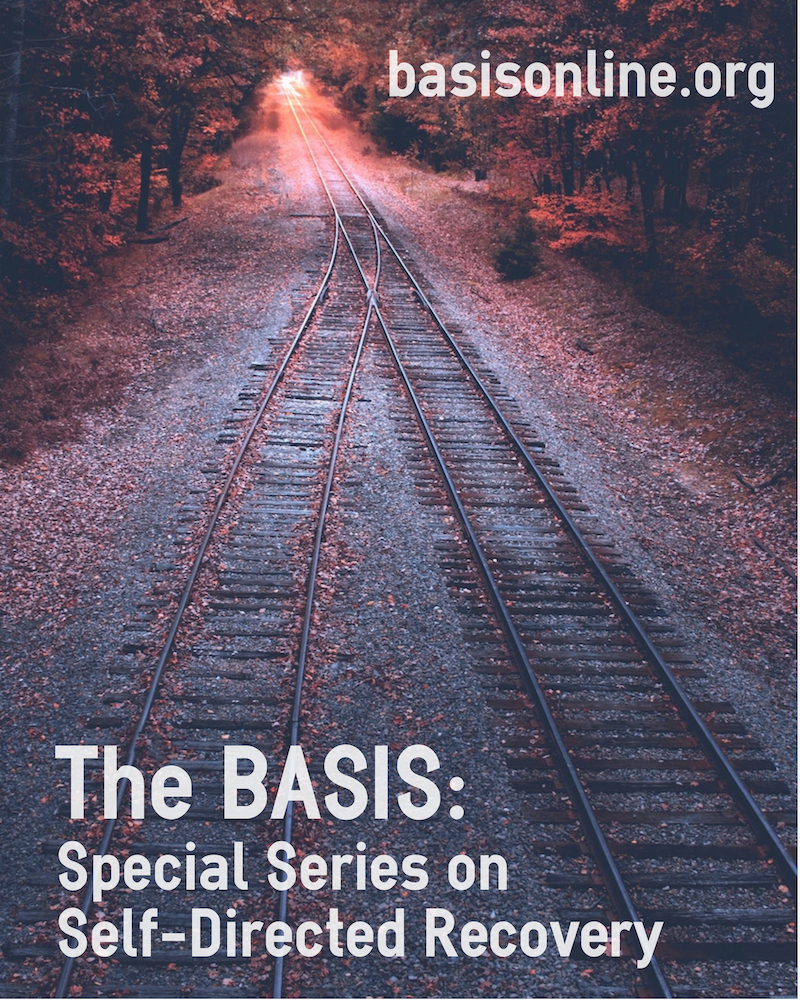 I recently attended a presentation about motivational interviewing.1 A practicing clinician raised his hand and asked the presenter what he should do about "true alcoholics." The way he asked this question is telling. It reveals what he thinks about people with substance-related problems. He seemed to infer that people with addiction are resistant to change. Perhaps he held a common belief that change is impossible without therapy and complete abstinence. The danger in thinking this way is that it can become a self-fulfilling prophecy: clinicians' attitudes and behaviors can suggest to clients that change is unlikely or even impossible. As a result, clients might start to believe it.
I recently attended a presentation about motivational interviewing.1 A practicing clinician raised his hand and asked the presenter what he should do about "true alcoholics." The way he asked this question is telling. It reveals what he thinks about people with substance-related problems. He seemed to infer that people with addiction are resistant to change. Perhaps he held a common belief that change is impossible without therapy and complete abstinence. The danger in thinking this way is that it can become a self-fulfilling prophecy: clinicians' attitudes and behaviors can suggest to clients that change is unlikely or even impossible. As a result, clients might start to believe it.
During the late 1980s, Drs. Howard Shaffer and Stephanie Jones wrote a book called Quitting Cocaine. They wanted to learn about how people recover from cocaine addiction without any formal treatment. Many of the people who recovered from cocaine dependence were surprised to learn that someone wanted to study them. They were even more surprised when they learned that others also had quit without any treatment. These people had never talked openly about successfully quitting because they feared that others would force them into treatment. They also wanted to avoid others who argue that they would inevitably relapse because they did not attend formal treatment.
Professional treatment for substance use behaviors is an important tool for recovery, but it is not the only way to quit. Many people who misuse psychoactive substances or experience behavioral addictions recover on their own, without the help of formal treatment. In other words, their recovery is self-directed. Roughly 25% of people screening positive for alcohol use disorder during their lifetime report no symptoms in the past year, despite never having received treatment for alcohol-related problems. About one-third of people with gambling disorder report similar experiences. Contrary to what many people believe, people can and do recover without seeking formal assistance. If more people understood that self-directed recovery is possible, and if researchers spent more time understanding the processes that contribute to change, then we might be able to improve people's confidence in their own ability to recover.
At the Division on Addiction, we want to encourage readers to recognize that there are many paths to recovery. For this reason, we are pleased to announce that we are dedicating the entire month of November to a Special Series on Self-Directed Recovery. This month you will have the opportunity to learn about some recent studies exploring recovery from addiction outside of formal treatment. On November 6, we will review a study of self-directed change among people with gambling-related problems. A week later, our second science review of the month will be examining the relationship between viewing oneself as a “problem drinker” and the course of self-directed recovery from alcohol use disorder. Then, on November 13th, we will review a study that investigates negatives moods and beliefs about anxiety and how these relate to self-directed smoking cessation. And finally, we will wrap up this special series with a study exploring social factors that contribute to different types of recovery. We will supplement these science reviews with an op-ed by Dr. Wendy Slutske, a researcher who pioneered research on self-directed recovery from gambling-related problems. Dr. Slutske currently studies the genetics of substance using populations of twin siblings.
We hope that you enjoy and learn from this Special Series. If you have your own stories to share or want to be a part of a thoughtful conversation about recovery, please comment below.
— Pat Williams
What do you think? Please use the comment link below to provide feedback on this article.
1 Motivational interviewing is a therapeutic enhancement designed to stimulate or magnify a client’s motivation to change.






cynthia macdougall November 5, 2018
Thanks for this series. I recall many years ago Dr, Zinberg talking about people in recovery who because they did this on their own, were never in statics about treatment/recovery.
F. Michler Bishop November 5, 2018
I am very glad to see that you are going to focus a special series on self-directed recovery. I think you may be interested in a recent review article on the same topic that was published in Health Psychology Open, Self-guided Change: The Most Common Form of Long-term, Maintained Health Behavior Change [journals.sagepub.com/doi/full/10.1177/2055102917751576].
I looked at six risky health behaviors: alcohol, heroin, and cocaine misuse, cigarette smoking, gambling and overeating. The majority of people recover from five out of six as they age using self-guided (or self-directed) change. Despite what is thought, millions of people lose weight and keep it off, i.e., 20%. Moreover, 80% may not lose weight and keep it off, but they undoubtedly change how they eat as they age or they would be even heavier. More funds and research should be focused on how people make these changes and how they maintain them.
F. Michler Bishop, Ph.D.
Director, Alcohol and Substance Abuse Services
Albert Ellis Institute, New York, New York
Fellow, Society of Addiction Psychology, American Psychological Association
Associate Professor, Psychology
SUNY College at Old Westbury
917-414-9660
Barry Goggin November 5, 2018
Problems cannot be solved with the same mind set that created them.”
― Albert Einstein
Jeffrey N. Kushner November 5, 2018
What we have learned in the drug court environment is that a self-directed recovery management plan is probably the best tool we have to help participants remain in recovery for the long-term. When drug court participants complete their own recovery management plan that will serve them for several years after they graduate drug court, there is significant benefit. A self-directed plan as opposed to a counselor created treatment plan, allows the drug court participant to buy in to their own goals and objectives and when we get them to utilize that plan in the last phase of drug court, they utilize the their plan long after drug court. Self-direction results in significant buy-in, a critical component for long-term recovery.
Professor David Clark November 6, 2018
Great stuff! Much needed resource. Wishing the very best with your initiative and website. Will be dropping in to see how it goes.
You might find some stuff you like on my website http://www.recoverystories.info (which I stopped blogging on some time ago, but keep the website up because of the info it contains). Please link to or use stuff as may help your initiative.
Mary Beth Schoening November 7, 2018
I love this self-directed recovery focus. I was just in a meeting with s Superintendent of Schools on Cape Cod, talking about support for teens who are struggling with substance abuse and I loved the Superintendent’s quote “Let’s not overlook the power of young people to self-identify. They might not know what they want yet, but they know the life they are living isn’t it, that something’s not right.”